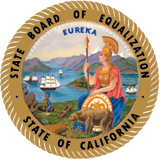Laws, Regulations & Annotations
Property Taxes Law Guide – Revision 2017
Property Tax Annotations
A B C D E F G H I L M N O P R S T U V W
F
445.0000 FREE PUBLIC LIBRARY AND FREE MUSEUM EXEMPTION
445.0015 Eligibility and Termination. Eligibility for the exemption is to be determined as of the lien date each year. Property which is leased or rented for such purposes can only be exempted after compliance with the claim provisions of the Revenue and Taxation Code.
The exemption is not terminated at once but must be determined as of the lien date next following the expiration of the lease or rental agreement. OAG 7/8/1975 (No. CV 75-60, Vol. 58, p. 538); C 10/29/1996.
445.0030 Free. Revenue and Taxation Code section 202(a)(2) exempts properties used for free public libraries and free museums. Libraries and museums are either free or not free. While it would seem that persons or organizations operating free public libraries or free museums would want to inform the general public of that fact through their signs, promotional materials, and advertising in order to increase public awareness and attendance, Section 202(a)(2) does not require the presence of a sign stating that the library or museum is "free", "no admittance charged," "open without charge", etc.
If a library or museum is a free library or free museum, a sign within the premises requesting donations would not interfere with the availability of the exemption, so long as no one is turned away for refusal or inability to make a donation. C 5/30/1996.
445.0039 Leased Property. For a museum and the leased land underlying the building to be eligible for the free museum exemption, the building itself would have to be primarily used as a museum, and the museum would have to be free and open to the public on a regular basis. In such case, the leased land underlying the building also would be deemed primarily used for the museum and, hence, eligible for the exemption.
For leased land supporting an underground parking garage as well as a museum to be eligible for the exemption, the building would have to meet the requirements for the exemption, and the parking garage would have to be primarily used for qualifying museum parking. If the parking garage is open to the general public and provides free parking to museum patrons, but charges for parking to non-museum patrons, both the garage and the leased land would be ineligible for the exemption. In that event, the parking garage is operated for commercial purposes unrelated to the use by the museum. No part of property or properties used for commercial purposes is eligible for the exemption. C 3/24/2004.
445.0040 Library. Public libraries operating under a joint powers agreement receive exemption on the personal property owned by the joint powers entity as property owned by government. Leased property used for public library purposes qualifies for exemption under Revenue and Taxation Code section 202(a)(2), if the benefit of the exemption inures to the library system as required by Revenue and Taxation Code section 202.2. C 8/11/1995.
445.0050 Museum. The decision in Fellowship of Friends, Inc. v. Yuba County, 235 Cal.App.3d 1190 holds that to qualify for exemption as a museum, a property must be specifically designated for the display and storage of artifacts or objects of art, be open to the public during its normal working hours, and be advertised as a museum. The predominant purpose and primary use of the property must be as a museum that houses and displays objects of lasting value. LTA 1/15/1992 (No. 92/04); C 1/29/2004.
445.0065 Public Access. In addition to being free, a public library or museum property must be accessible to the general public on a regular, publicized basis in order to qualify for either exemption. C 5/7/1987; C 5/7/1987.
445.0066 Public Access. To satisfy the "open to the public" requirement for exempting property used as a free museum, the property must be open to the public on a regular basis and the public must be aware that such is the case. In Fellowship of Friends, Inc. v. Yuba County, 235 Cal.App.3d 1190, the court found that the free museum exemption did not apply in the case of a property located in an isolated location that was only open to the public two days a week with little advertising as to its existence or hours of operation, although not for that reason. C 7/15/1992.
